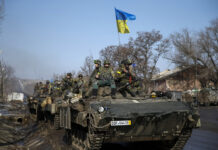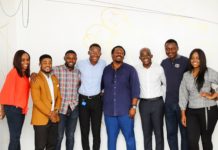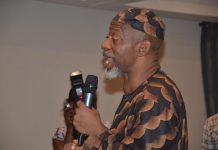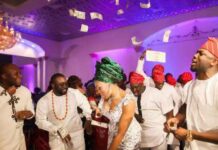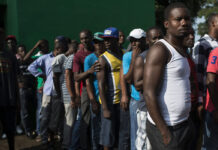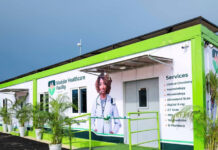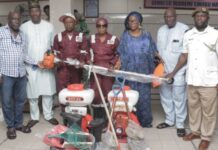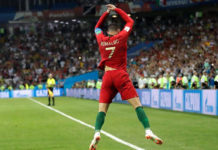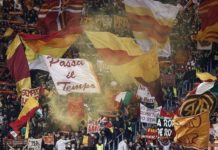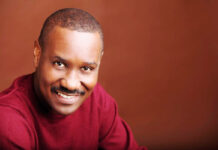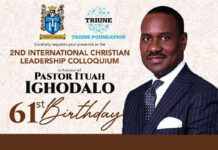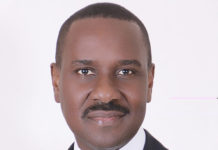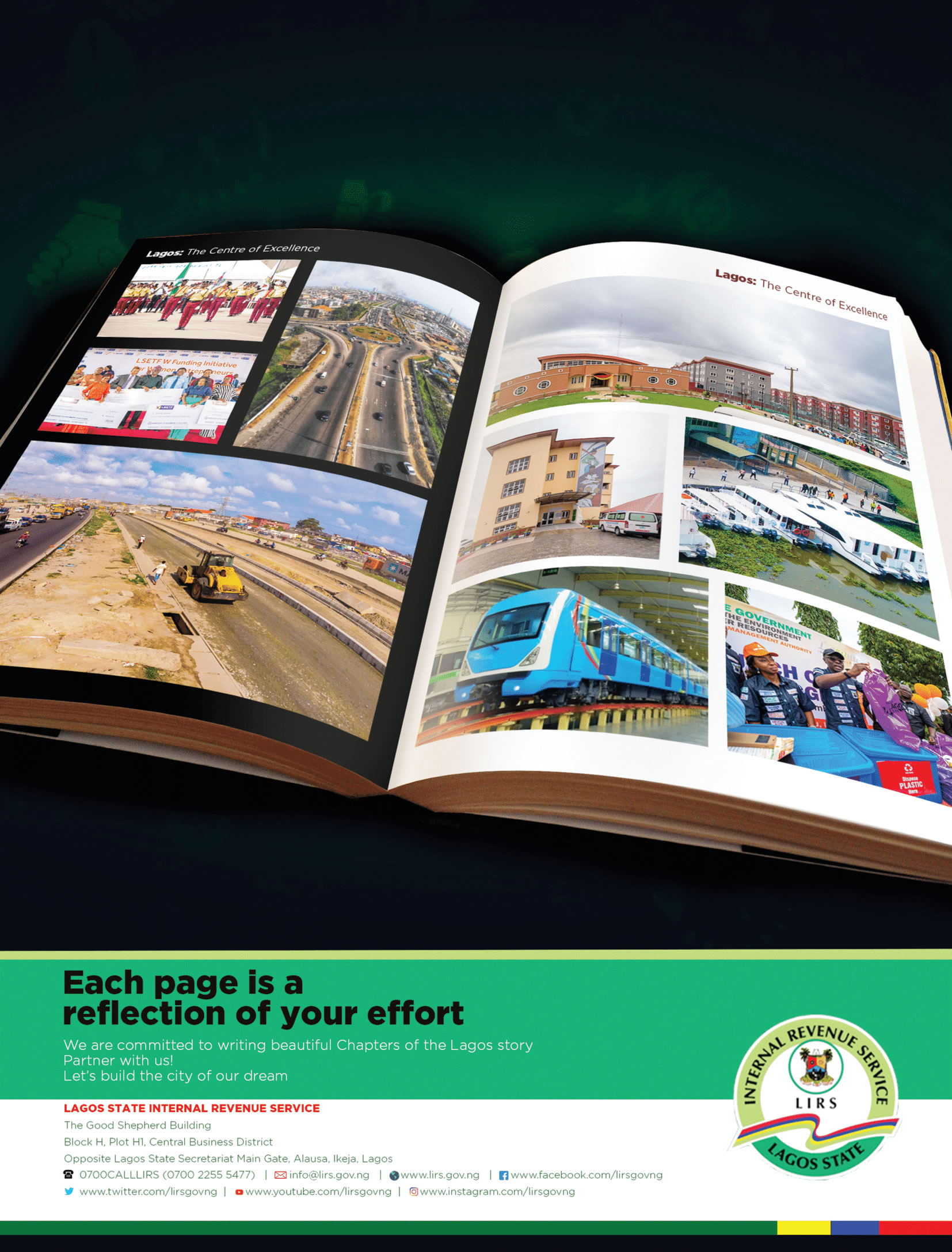 Since Nigeria returned to democratic governance in 1999, there has been the norm that the internal affairs of the two major political parties always heats up the polity anytime their national conventions and primaries are approaching.
Since Nigeria returned to democratic governance in 1999, there has been the norm that the internal affairs of the two major political parties always heats up the polity anytime their national conventions and primaries are approaching.
In the build up to the 2003 elections, the internal politics of the then ruling Peoples Democratic Party (PDP), under the leadership of President Olusegun Obasanjo, was so severe such that he made an unguarded statement that the Southwest, which was controlled by the defunct Alliance for Democracy (AD) would be “captured.”
Infighting within the then ruling PDP as to who becomes what, led to series of political casualties and several politicians from various platforms were forced to defect from one party to the other in search of mandates.
Under the PDP then, no less than four national chairmen served during Obasanjo’s era and someone like Chief Audu Ogbeh, was dropped as the party’s national chairman in a guerrilla manner. Till today, the former minister of Agriculture always expressed bitterness about the way he was maltreated as the erstwhile PDP national chairman.
The situation was nothing different in 2007, when leadership was to be handed over to new leaders. The first set of elected officers in 1999 had completed their two terms and they looked up to either plant their loyalists, to whom they will relinquish power.
The situation also led to stiff internal party politics across various political parties, where every interested stakeholder became desperate to determine who controls the party structure that will midwife the primaries. The Nigerian governing system was brought almost to a halt as elected politicians practically abandoned governance to go and struggle for space in the party.
It later became a norm that every four years when new elections are to hold, especially as national conventions and primaries of political parties are approaching, governance suffers while the national polity is unnecessarily heated up.
Critical observations show that a year before every general election, governance is almost totally abandoned. A dangerous dimension crept in during the 2011 election when zoning turned to an issue between the North and South and even within states at the senatorial, constituency districts.
Between 2015 and 2018, major opposition PDP had series of restless internal crises in which two factions led by Senator Ahmed Markafi and former Governor of Borno State, Alhaji Ali Modu Sheriff, lay claim to the national chairmanship of the party.
 Although PDP as at then had been in the opposition, the challenge however created no small crisis in all the states under the control of the party. The governors nearly abdicated governance in their various states to focus on party affairs.
Although PDP as at then had been in the opposition, the challenge however created no small crisis in all the states under the control of the party. The governors nearly abdicated governance in their various states to focus on party affairs.
Until the Supreme Court ruled in favour of Markafi and recognised him as the authentic chairman of PDP in a judgement in 2017, the party’s internal challenges were a burden some states had to shoulder in terms of governance.
The ruling All Progressives Congress (APC), even though it is new to power, also faced its own internal power play in the preparation for the 2018 and 2022 national conventions. These are years preceding the general elections.
In February 2018, some forces within the party insisted that its then national chairman, Chief John Odigie-Oyegun must go after his first term of four years, but other factions recommended tenure extension. President Muhammadu Buhari at the party’s first National Executive Council (NEC) approved tenure extension for Odigie-Oyegun, on the condition that this will douse tension in the party; the likes of Bola Tinubu, a national leader of the party, who as at then had fell out with Odigie-Oyegun refused.
Bubari reluctantly reversed himself and approved a convention to hold. All the intrigues within the party then also heated up the nation’s polity in no small dimension. The emergence of Comrade Oshiomhole, a former governor of Edo State as successor of Odigie-Oyegun, did not also resolve the internal bickering for power in the party.
For instance, in Lagos State, it was assumed that Oshiomhole, who as at then was perceived as Tinubu’s Man-Friday, was allegedly used during the October 2018 to authorise a controversial direct governorship primary in Lagos that unseated the seating governor, Mr. Akinwunmi Ambode.
There are other irreconcilable crises witnessed in the party under the leadership of Oshiomhole that eventually resulted in APC’s defeat in the governorship elections of some states. While APC was having its challenges, the major opposition PDP was not immune to similar crises. In Ogun State for instance the struggle for power between the late Senator Buruji Kashamu, who laid claim to the party’s 2019 governorship ticket and the Ladi Adebutu faction, who also emerged the party’s candidate in another primary had a negative effect on the state.
At that same time, former governor Ibikunle Amosun was fighting the incumbent to ensure that Governor Dapo Abiodun did not get the party’s ticket. Similar dangerous party politics was experienced in both APC and PDP in Zamfara, Rivers and other states across the federation.
The country’s two competing parties are greatly distressed from internal combustion. Recall that PDP removed its immediate national chairman, Prince Uche Secondus, in a controversial manner based on clash of interests with Governor Nyesom Wike, who allegedly planted him in 2018 against the agitation of Southwest with the argument that it was the zone’s (Southwest) turn to produce the national chairman. Oshiomhole, who emerged as APC national chairman was sacked by the party’s NEC in 2020 and replaced by Governor Mai Mala-Buni as chairman, Caretaker/Extraordinary Convention Planning Committee (CECPC).
At present, the internal bickering in the two major parties over where to zone their next presidential ticket is also heating up the polity. The governing APC and the opposition PDP are being quaked by purely internal conflicts of interests, especially as the conflicts touch the permutations and cutthroat schemings towards the all-important transitional presidential election in 2023.
 Unfortunately, the scheming has continued to weaken the already wobbly structures of the country’s democracy so much so that 2023 in itself has started to sound like doomsday. Speaking on the situation, National Chairman, African Democratic Congress (APC), Chief Ralph Nwosu, said the characteristics of the two major parties have imposed a toxic culture of money and power in the nation’s politics. He noted that’s the reason the do-or-die affairs trailing their conventions since 1999.
Unfortunately, the scheming has continued to weaken the already wobbly structures of the country’s democracy so much so that 2023 in itself has started to sound like doomsday. Speaking on the situation, National Chairman, African Democratic Congress (APC), Chief Ralph Nwosu, said the characteristics of the two major parties have imposed a toxic culture of money and power in the nation’s politics. He noted that’s the reason the do-or-die affairs trailing their conventions since 1999.
He said gladiators in the two leading parties have left leadership and nation building to struggle for control of party structure which is now a ‘Mafia Enterprise’. According to him, “The internal affairs of the parties would be so because whoever struggles to put a party structure in place that will guarantee him the post of president, governor or lawmaker, automatically becomes the richest person in the country, his state and districts.”
He said the only way the bad norm can be changed is for Nigerians to vote out PDP and APC in power. He noted that the fight to plant those that will direct the party’s affairs in the National Working Committee (NWC) because they are the one to determine who gets what ticket, is really the reason behind the crisis. On how it affects the nation, Nwosu said the process is so expensive. “For instance, look at the humongous price these parties sell their nomination forms?”
A former Commissioner in Kaduna State and Spokesman of Middle Belt Forum, Dr Isuwa Dogo, described the development as normal because it is a norm all over the world that party stakeholders must struggle to get hold of control of party structure, anytime election is approaching. He, however, lamented that the abnormal aspect of it is the less attention focused on governance during the period. He said real rigging takes place at the party’s convention and primaries to get the tickets of the party. “If you are not a candidate, you cannot be voted for. “You cannot contest in a major election unless you are on a party’s ballot paper. This shows the do-or-die syndrome associated with party convention and primaries, which is not synonymous to Nigeria.”
He emphasised that the most important thing is whosoever is seeking political offices must resign if he/she is holding public office. A former special adviser on Information and Strategy in Lagos State, Idowu Ajanaku, said there is no remedy to the internal crisis of parties that are preparing for conventions because stakeholders must scheme to have their loyalist in place.
According to him, “What happens before, during and after political parties’ conventions always affects the polity, but is not peculiar to Nigeria. The only exception in our case is the do-or-die approach and the get it at all cost approach.”
Spokesman Urhobo Progress Union (UPU), Abel Oshevire, said there can be no constitutional remedy to the matter. “It is a struggle for power at the party level, but what worsened ours in Nigeria is because public offices are the easiest means of becoming rich.”
